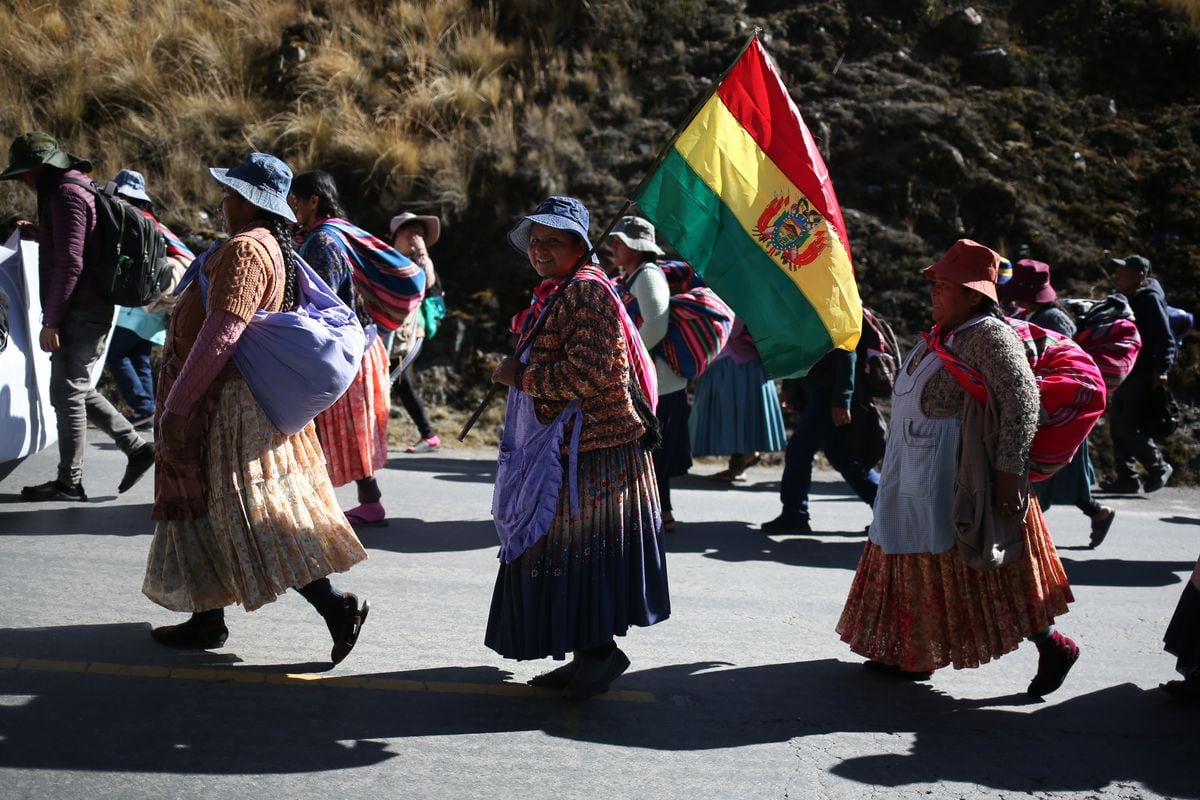The disqualification of Evo Morales as a presidential candidate, carried out by the Plurinational Constitutional Court (TCP) of Bolivia in December of last year, could not go without a response from its bases.
The supporters of the former Bolivian president (2006-2019) have cut off the routes in his bastion, the coca-growing area of Chapare, for an indefinite period of time, and blocked the country's main economic route, the one that connects the administrative capital, La Paz, with the prosperous Santa Cruz de la Sierra.
They have also paralyzed traffic in the Potosí region.
Thus, the long and varied history of road closures in Bolivia has been augmented by a new type.
For the first time these are carried out against the Judiciary.
The “evistas” who occupy the roads demand that the judges of the high courts, including those of the TCP who made it impossible for Morales to run again, resign from their positions and judicial elections be immediately called.
From the perspective of the protesters, Bolivia is suffering a “judicial coup” due to two events: the indefinite extension of the mandate of the magistrates, which ended on December 31, and the undated postponement of the judicial elections that were to be held in 2023. The Government and most analysts consider that the underlying objective of the protests is another: to prevent the electoral disqualification of Morales by promoting the formation of a new TCP that reviews constitutional ruling 1010/2023, which established a maximum of two continuous or discontinuous periods for presidents, and thus removed Morales from any future competition, since he has already held the highest Bolivian political office three times, from 2006 to 2019. In a speech on national television, President Luis Arce said that he has “reasons to be alert and on the alert.”
He pointed out that the followers of Evo Morales, whom he labeled as “new right”, add to the already known conservative threats against his government, only “out of personal and electoral ambitions.”
The demand of those mobilized echoes an international concern.
On January 22, Margaret Satterthwaite, United Nations Special Rapporteur on the Independence of Judges and Lawyers, spoke in Geneva for the prompt holding of judicial elections in Bolivia, which she considered “one of the key elements to guarantee the independence and the impartiality of justice.”
Former President Morales expressed his solidarity with Satterthwaite on her social networks.
Arce spoke that “every effort must be made to pave the way for judicial elections, but always within the provisions of the Constitution and avoiding political quota.”
The elections of magistrates, which are also demanded by the traditional opposition with parliamentary methods, were blocked last year due to the dispute of forces in the Legislative Assembly, which was fragmented after the division of the leftist Movement towards Socialism (MAS) into two groups, one loyal to Morales and another to President Arce.
The TCP also contributed to this failure, since it declared two calls for judicial elections unconstitutional.
He has been accused of having made the elections unviable in order to extend the current courts.
The “evismo” maintains that the Government needs the extension of the current judicial authorities to ensure Arce's re-election in 2025 by disqualifying Morales and handing over the legal status of the MAS to the party wing that responds to the president.
That is why the route closure is carried out against this extension.
The popular election of magistrates is a Bolivian innovation, introduced by the 2009 Constitution. The two elections that have been held so far have been easily controlled by the MAS, which had two-thirds of the Parliament and could itself select the judges. candidates that he would then present for consideration by the electorate.
Since no party already has this advantage, the preparation of a list of candidates would require the conclusion of agreements between different parties, which would imply sharing political influence over justice among them.
Until now, this challenge has proven too great for the current Bolivian political system.
Follow all the information from El PAÍS América on
and
X
, or in our
weekly newsletter
.

